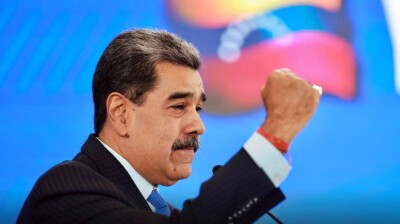The European Union is seeking to deepen its relationship with Latin America and the Caribbean, framing the partnership as one built on "strategic autonomy" rather than as a counterbalance to China's growing influence in the region.
Speaking at a European Parliament seminar on EU-Latin American relations on February 17, the EU's High Representative for Foreign Affairs, Kaja Kallas, made clear that Brussels' investment strategy was not designed to counter Beijing, which firmly established itself as a major player in the region’s economic landscape through its trademark Belt and Road initiative and large-scale bilateral lending.
"This is not about countering China, but about defending our shared values and interests. We value our partnership with Latin America and the Caribbean in its own right," Kallas told diplomats and government representatives at the event organised by the Euroamerica Foundation and the European-Latin American Parliamentary Assembly.
The former Estonian prime minister pointed to common ground between the regions: "In Europe, we call it strategic autonomy. In Latin America and the Caribbean, you call it sovereignty, but we mean the same thing. We do not want dependencies. We do not believe in spheres of influence."
The EU appears to be accelerating its engagement with "America's backyard" and is reportedly mulling upgrading trade ties with China following what sources described as a shock treatment from the new US administration regarding global trade relations and the future of Nato.
Speaking at the Munich Security Conference last week, US Vice President JD Vance sent shock waves across Europe, making it clear that the Trump administration is no longer interested in preserving 80 years of transatlantic partnership based on common values. Washington now appears to be cosying up to Russia to bring the Ukraine conflict to a swift end, come what may. As a result, Brussels is seeking to diversify its partnerships beyond traditional allies.
This approach aligns with European Commission President Ursula von der Leyen's recent message that "the EU will be firm and pragmatic in the defence of its interests and values". Von der Leyen is scheduled to attend the Caribbean Community summit in Barbados this week, a visit Kallas described as "important" in "a fast-changing and complex world".
As a large investor in Latin America (36%), its third-largest trading partner and primary aid donor, the EU hopes to leverage existing economic ties. The bloc has recently moved closer to finalising trade agreements with Mercosur – which could create the world's largest free trade area – and Mexico.
Trade in services and goods between Latin America and the Caribbean and the EU reached $369bn in 2021-22, a 39% increase from 2013 figures. Meanwhile, EU investment stocks in the region totalled $693bn in 2021, representing a 45% rise compared with 2013.
During Trump's first weeks in office, Latin America has borne the full weight of his administration’s policies, ranging from raising the spectre of tariffs to win concessions, forced migrant deportation, USAID funding cuts and even invasion threats against Panama, whose key canal has been accused of being under direct Chinese influence.
Kallas highlighted the region’s strategic importance to Europe's economic security, noting its rich biodiversity, renewable energy capacity and critical raw materials essential for green and digital transitions.
"Latin America and Caribbean is central to Europe's economic security and de-risking strategy," she said, adding that the region has an "impressive renewable energy capacity, accounting for 60% of the power mix, double the world average."
The next EU-CELAC summit, which brings together European and Latin American leaders, will "probably" be held in November in Colombia, according to Colombian representative Margarita Eliana Manjárez, who attended the seminar.
Kallas addressed global democratic challenges such as corruption and disinformation on social media. Turning to the region, she criticised Venezuela's disputed election results as "not credible,” echoing recent reports from independent observers.
The EU's approach focuses on three key transitions – green, digital and fair – embedded in trade agreements and the Global Gateway initiative for sustainable infrastructure, according to the EU representative.
"Democracy and the rule of law are not just who we are," Kallas said, "they are also good for business. They make innovation and investment possible."
Speaking before her address, Former Spanish minister and Socialist MEP Ramón Jáuregui, who now presides over the Euroamerica Foundation, quipped that "Latin America is the American friend of the EU. I don't know if it is the only one."
News

Taiwan’s KMT elects new leader
Cheng Li-wun, the only female contender among six candidates, defeated former Taipei mayor Hau Lung‑bin by a wide margin, winning over 50% of the ballot in the leadership race for Taiwan’s opposition Kuomintang on October 18.

Gold price in Sri Lanka plunges
The sudden drop of around LKR20,000 in both 22- and 24-carat sovereigns adds to a volatile recent run for precious-metals pricing in the island nation: only days earlier, gold prices were noted to be climbing.

Mongolia’s PM ousted as party infighting topples government
Right to challenge sacking means battle may not be over. Observer says confrontation is linked to desire for control of country’s vast coal resources.

Ex-chairman of Istanbul-listed Sisecam hit with travel ban in Can Holding investigation
Company is controlled by "Ataturk" bank Isbank, which has previously been in the crosshairs of Turkish president Erdogan.



_1759927176.jpg)
